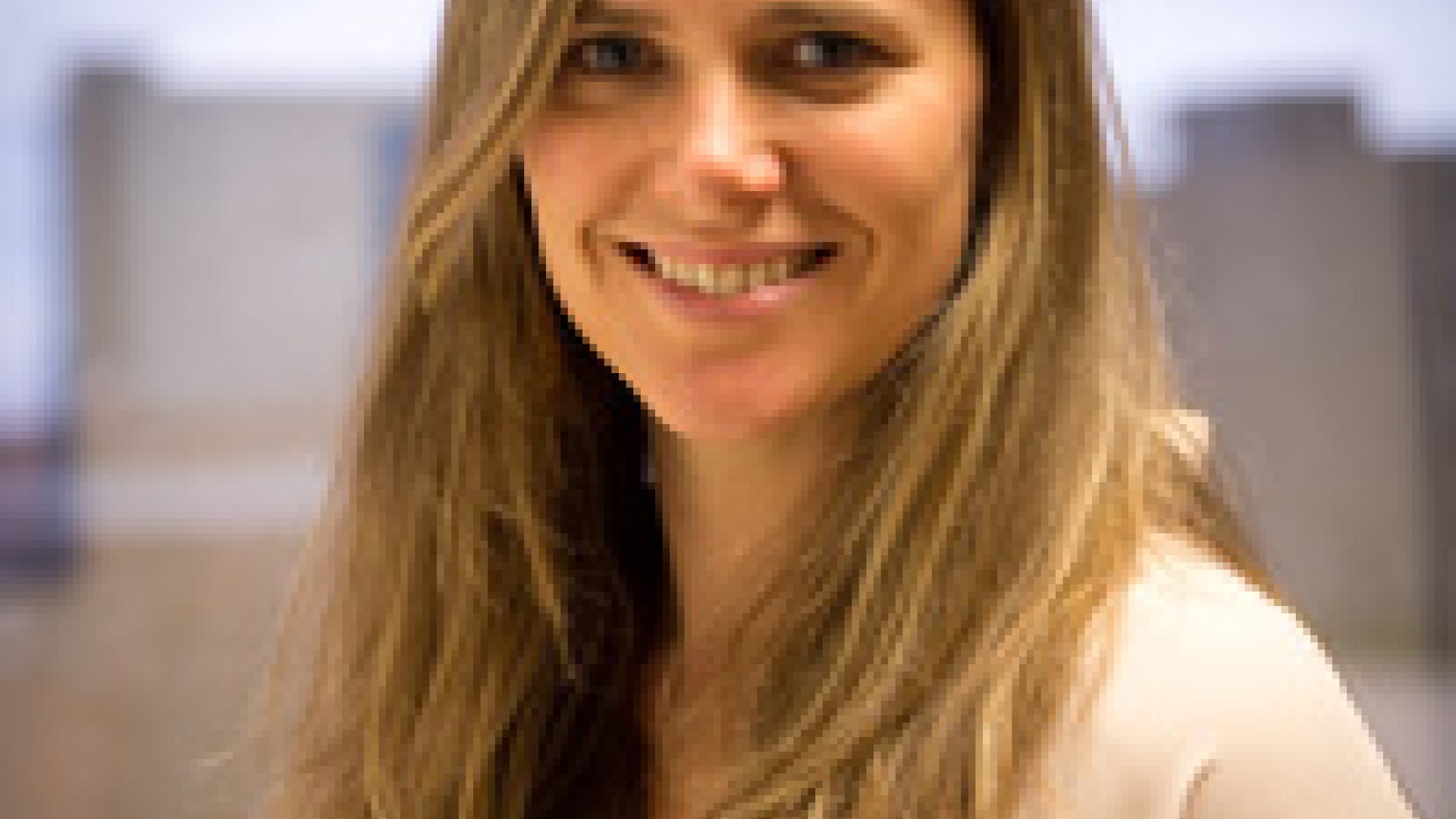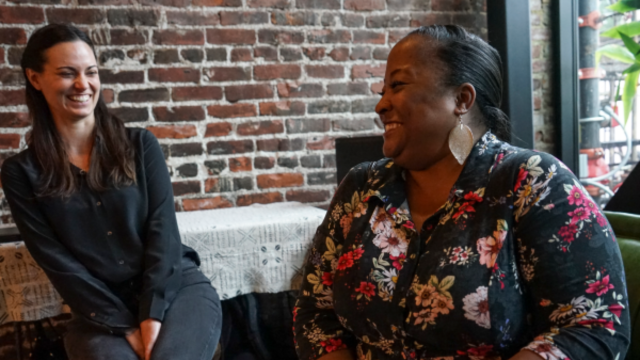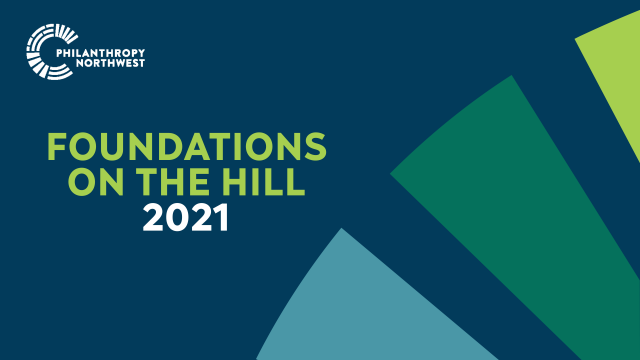
Kristen Holway, Senior Manager, Learning Practice
How often do you find yourself having dinner table conversations about the state budget? For the average person, the answer is likely somewhere between “uh, never” and “only when we’re on the verge of a government shutdown." If you're actively engaged in research, advocacy or public policy work, the answer may fall somewhere between “every two years” and “all the time." Either way, the state budget offers insight into what we value. According to Dr. Lori Pfingst, research and policy director at the Washington State Budget & Policy Center, our operating budget is a “reflection of what we feel is important and a tool to ensure social and economic progress.” Which makes me wonder whether our network of philanthropists should be talking about it much more frequently.
Last week, Pfingst spoke to Philanthropy Northwest members about the progress Washington state is making towards creating a prosperous future for all. She shared key findings from a March 2015 report, The Progress Index: Measuring Shared Prosperity in Washington State, that illustrates how Washingtonians are faring across approximately 100 measures of progress. The report maps progress in six areas: economic security, education, healthy people and a healthy environment, community development and trust, good jobs, and revenue generation.
Questions to Explore
Washington State Budget & Policy Center is using this research to tell the story of how budget decisions impact diverse individuals, families, businesses and communities in their ability to thrive. The Progress Index explores questions such as:
- Are social programs working to reduce the impact of poverty?
- Can aspiring students access and afford higher education?
- Is our water, air, and land safe and clean for use?
- Do communities have access to amenities that enhance the quality of life?
- Is economic growth strong and shared with workers?
- Is our tax system equitable?
Left Behind
An overarching theme in Pfingst's presentation and the underlying research is that people of color are being left behind. A few powerful points she shared:
Regressive Tax System: According to The Progress Index, Washington is “the most upside-down tax system in the nation. Poor and middle-class families pay the largest share of their income in taxes (16.4 percent), while the richest 1 percent pay the least (2.4 percent). “Equity becomes central to the budget story. We really cannot say we’re making progress until all groups are making progress,” Pfingst said. The reality is that people of color “are more likely to be among the highest taxed and the lowest-income” in the state.
Income Inequality: Any gains in closing the income inequality gap since 2009 have all gone to the top one percent. “At the height of post-war prosperity, the percent of income held by the top one percent of earners never went above 11 percent. Now, 23 percent of all income goes to the top 1 percent,” Pfingst said. What does this say about how we value workers, especially considering that labor productivity and Gross-state product are on the rise? “Are we pitting businesses against people?” she asked.
Shortage of Good Jobs: We talk a lot about growing a quality labor force for STEM jobs, and our state is recognized for its excellence in these sectors, but 85 percent of occupations are not STEM-related. The top three non-stem jobs are: retail sales, cashiers and food service. All of these occupations have a median income less than $24,000. By comparison, STEM jobs have a median income of nearly $78,000. Translation: “the majority of jobs in Washington State do not pay enough to support a thriving middle class”.
Success is Not Equally Shared: We’ve made key advances in everything from increasing support for mental health programs, decreasing toxic chemical waste from manufacturing, and increasing the number of children who received dental care. We should not be ashamed to celebrate our successes, but understanding how they play out across populations is important. For example, rates of incarceration are down since 2008. However, people of color continue to be disproportionately represented in prison. And, while we’ve made progress on the overall unemployment rate in the state (5.7 percent), unemployment in rural areas ranges between 15-21 percent.
What role can philanthropy play to accelerate progress?
Some of the questions that surfaced from members included: What are the leverage points? How do we inspire increased funding upstream? What advocacy organizations already exist who are doing this work? There is no simple answer to these questions, but four ideas emerged from our discussion:
- Support the identification of critical issues at the local level and link them to state priorities. For example, Washington Nonprofits is mapping community risk indicators at the school and county level via their Community Impact Project. They are working across sectors to identify actions that can catalyze progress against specific local goals in a few pilot counties. In turn, the Governor’s Results Washington staff will provide insight into how local goals are linked to state goals.
- Partner directly with the government. Michigan created a non-partisan Office of Foundation Liaison (OFL) in 2003 at the urging of local philanthropic leaders. The OFL currently resides in the Governor’s administrative office and is a cabinet level position. This was the first position of its kind in the nation. Support for the position was initially financed by local funders.
- Create connections between direct service providers, nonprofit intermediaries and public policy experts. Support staff time for these nonprofits to self-identify connections in their work and to develop shared programmatic goals and advocacy agendas that leverage each of their individual assets.
- Share The Progress Index with your grantees. How does this data inform, influence or affirm their work? Can they use this information to build their story-telling capacity? Could they use it as a starting point for local exploration or research?
Regardless of whether you agree or disagree with the recommended policy changes highlighted in The Progress Index, the report and Pfingst's presentation posed a very important question for us all to consider: “Is this the state we want?”
Kristen Holway oversees the development and implementation of learning communities and cohorts, professional development workshops and member-driven programming. She can be reached at kholway@philanthropynw.org.


